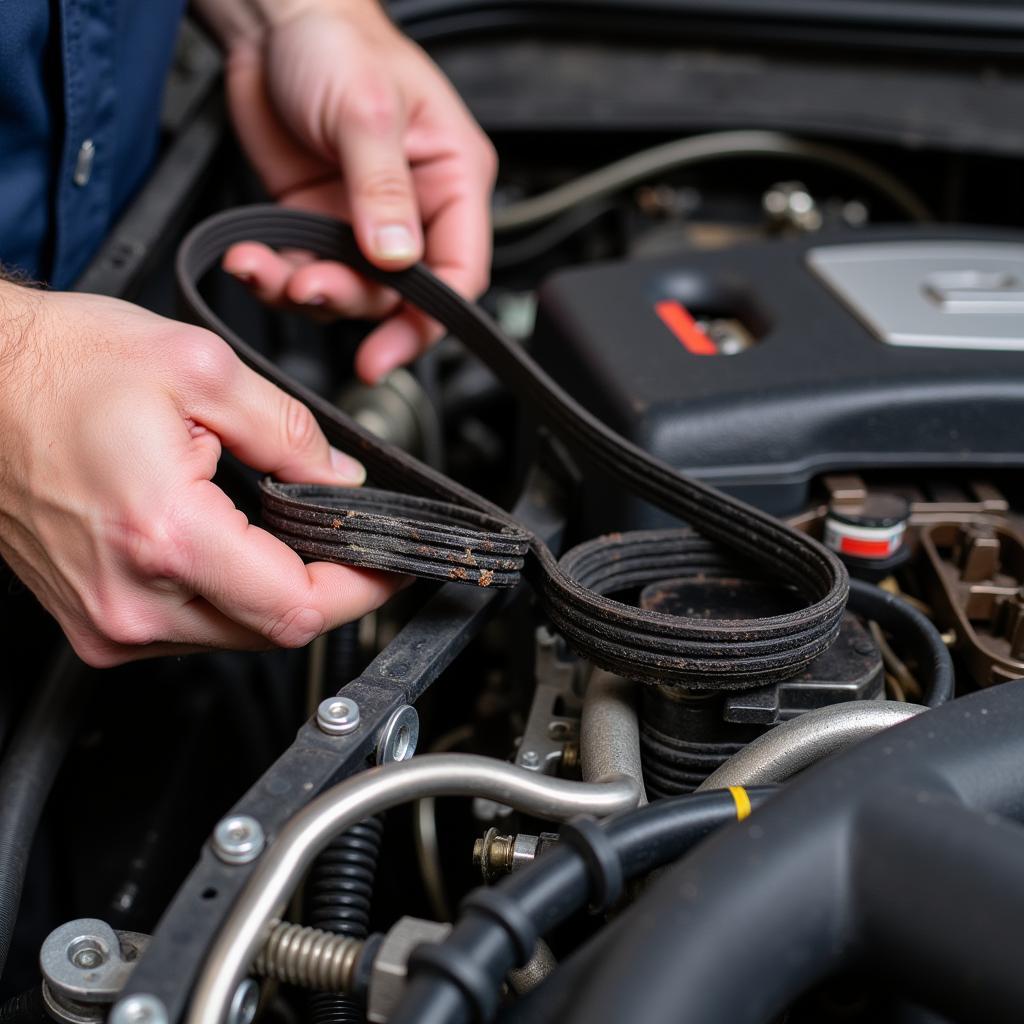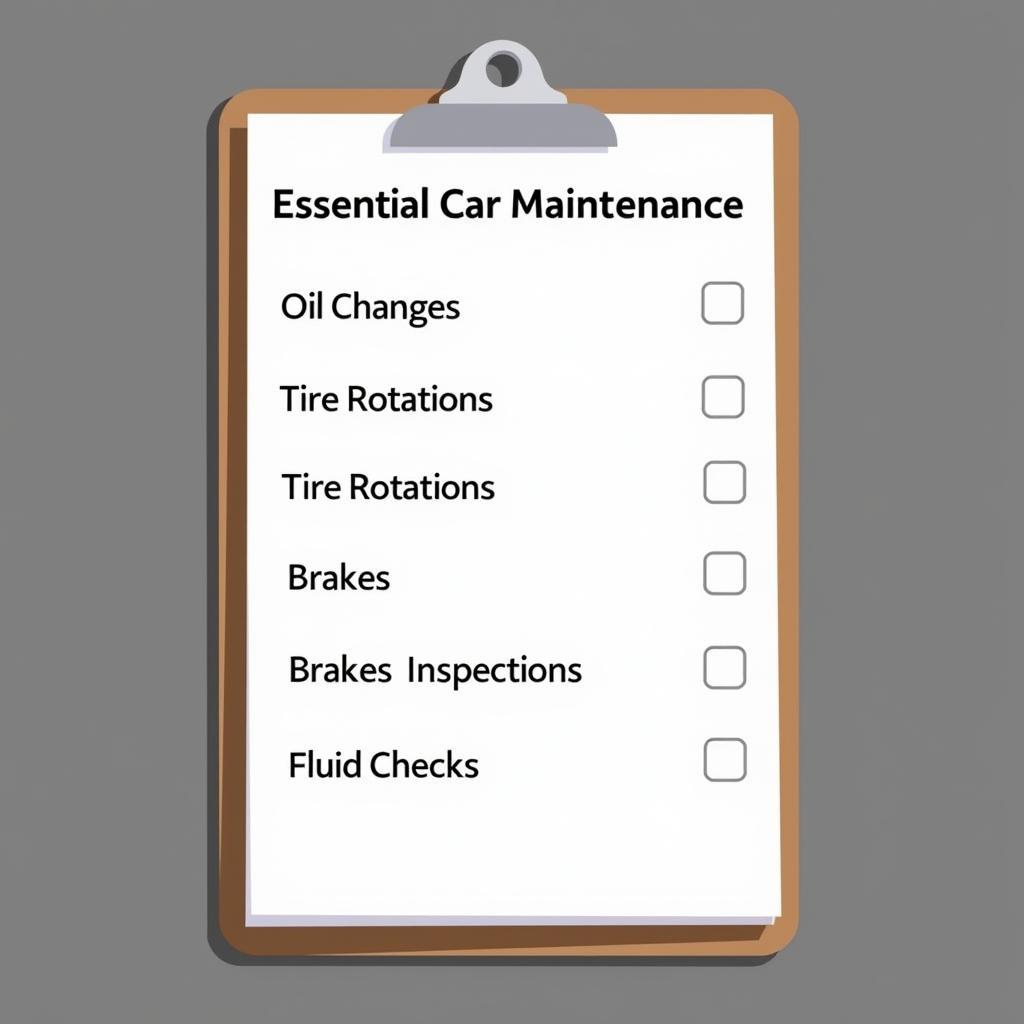How Much Is a Car Service Usually?
Knowing how much you’ll spend at the mechanic can be as clear as mud. You hear “routine maintenance” and think a quick hundred bucks, then bam! The bill comes back looking like your grocery list after a holiday.
But don’t despair! Understanding car service costs doesn’t require a mechanic’s certification. We’ll break down the average costs, factors that influence pricing, and even some insider tips to keep those repair bills from becoming a horror story.
The Car Service Cost Conundrum: Why Is There No Magic Number?
You wouldn’t expect a haircut and a brain surgery to cost the same, right? Cars, in all their mechanical glory, are similar. A simple oil change is a world away from a transmission rebuild in terms of cost.
Here’s the deal: car service costs depend on a delightful mix of factors:
- Type of service: An oil change is cheaper than a brake job.
- Car make and model: A luxury car will generally cost more to service than a standard model.
- Your location: Big city mechanics often have higher overhead costs.
- The shop itself: Dealerships generally charge more than independent mechanics.
Breaking Down the Costs: What Can You Expect to Pay?
While exact figures are elusive, here’s a general price range for common car services:
- Oil Change: $30 – $70
- Tire Rotation: $25 – $50
- Brake Pad Replacement: $150 – $300 per axle
- Battery Replacement: $100 – $200
- Alternator Replacement: $300 – $600
- Timing Belt Replacement: $500 – $1000
 Car Timing Belt Replacement
Car Timing Belt Replacement
Pro Tip from Master Mechanic, John Smith: “Don’t skip your scheduled maintenance! It may seem like an extra expense now, but regular check-ups can prevent small issues from snowballing into costly repairs down the road.”
Is It Worth Going to the Dealership?
Dealerships often tout specialized knowledge and genuine parts. While those are valid points, they come at a premium. Independent mechanics can be just as knowledgeable, often offering more competitive prices.
Consider this:
- New Car Warranty: During your warranty period, sticking with the dealership might be required to maintain coverage.
- Specialized Repairs: If you drive a less common or luxury vehicle, a dealership might be better equipped for specialized work.
Budgeting for Car Maintenance: Tips to Keep Your Wallet Happy
Car troubles can be stressful enough without the added anxiety of unexpected expenses. Here’s how to plan ahead:
- Read your owner’s manual: It outlines recommended maintenance schedules and helps you anticipate upcoming costs.
- Set aside a car maintenance fund: Having a dedicated savings account for car repairs can prevent financial strain when the unexpected occurs.
- Shop around for quotes: Don’t hesitate to call different mechanics for quotes on the same service. You might be surprised at the price difference.
- Ask about discounts: Many mechanics offer discounts for AAA members, military personnel, or seniors.
 Car Maintenance Checklist
Car Maintenance Checklist
Remember: Communication is key! Don’t be afraid to ask your mechanic for clarification on any service or cost. A good mechanic will be happy to explain and address your concerns.
How to Become a Car Service Savvy Consumer
The more you know, the better equipped you are to navigate the world of car repair costs. Here are some final words of wisdom:
- Keep detailed records of your car’s service history.
- Learn basic car maintenance tasks. Checking your tire pressure or changing your air filter can save you money in the long run.
- Don’t ignore warning lights on your dashboard. Addressing issues early can prevent more serious (and expensive) problems down the line.
By understanding the factors influencing car service costs and following our tips, you can approach your next mechanic visit with confidence and a clear head.
FAQs
Q: How often should I get my oil changed?
A: Check your owner’s manual for specific recommendations, but generally, every 5,000-7,500 miles for conventional oil and 7,500-10,000 miles for synthetic oil is a good rule of thumb.
Q: What are some signs I need new brakes?
A: Squealing or grinding noises when braking, a vibrating brake pedal, or a longer stopping distance than usual.
Q: How long does a car battery typically last?
A: On average, car batteries last about 3-5 years. However, various factors like extreme temperatures and driving habits can affect their lifespan.
Need more help?
Check out these related articles:
Still have questions? Don’t hesitate to contact us. Our team of car service experts is available 24/7 to provide personalized advice and address your concerns. Reach out via WhatsApp: +1(641)206-8880 or Email: [email protected]. We’re here to help you keep your car running smoothly!

